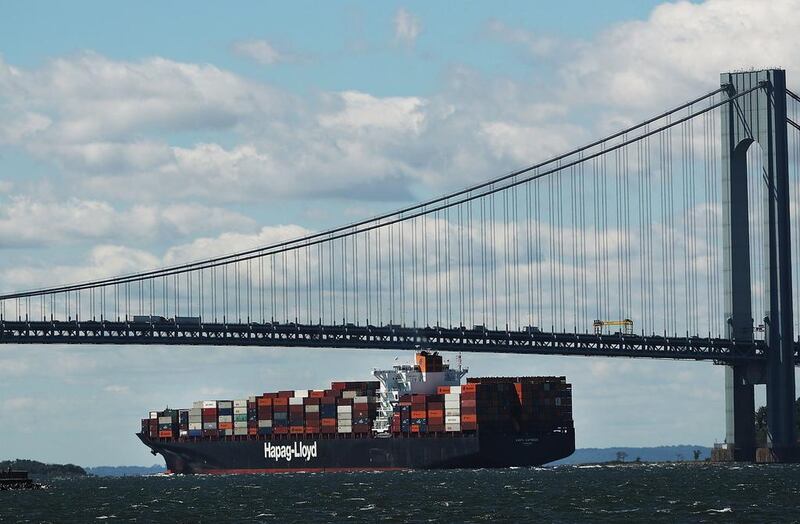The writers are, respectively, a senior analyst and an analyst at The Delma Institute, an international affairs research house based in Abu Dhabi. In this analysis written for The National they say that Donald Trump's victory could herald economic uncertainty and market volatility.
On November 8, the Republican Party nominee Donald Trump was elected the 45th president of the United States. Despite a torrent of scandals, Mr Trump succeeded in large part because of the extreme unpopularity of the Democratic Party nominee Hillary Clinton. However, Mr Trump will enter office next January 20 with far from a mandate and countries worldwide – not only the US – will undoubtedly look ahead with fear and trepidation.
While a Clinton presidency would have brought with it a globalist approach alongside large measures of certainty and stability to the US and global economies, Mr Trump’s election will herald the opposite, likely resulting in damage to both American and global economic growth.
Mr Trump’s economic ideology and plans – based on what can be discerned from his campaign – include deregulation, strengthening trade barriers and reducing corporate taxes. His measures are likely to stir uncertainty and volatility in global markets that will weaken investor sentiment, including across the GCC.
Beyond that, according to independent analysis, Mr Trump’s policies will most likely lead to lacklustre US economic growth and, potentially, economic contraction. (In the third quarter, America’s GDP rose by 2.9 per cent.)
The US, by value, is not one of the GCC’s most significant trade partners and inward flows in external sectors such as tourism and real estate are not substantial. However, economic contraction in the US, should Mr Trump’s policies be adopted, will damage the global economy, particularly open regional economies vulnerable to global shocks. Low interest rates are likely to persist and the associated economic slowdown will be indirectly channelled into domestic markets through weakened demand in common partners such as China and India.
At the same time, volatility and uncertainty in advanced economies create an indirect advantage for emerging markets. During the 2008 global financial crisis, on account of real and perceived weaknesses in traditional safe havens and developed economies, the search for higher yields led to investment flows diverting towards emerging markets.
These benefits should not be overstated; they are, at best, minor and stem from the likely creation of weakened economic conditions worldwide. Ultimately, Mr Trump’s election will result in US and global economies experiencing upheaval as they enter a period of significant uncertainty.
business@thenational.ae
Follow The National's Business section on Twitter





